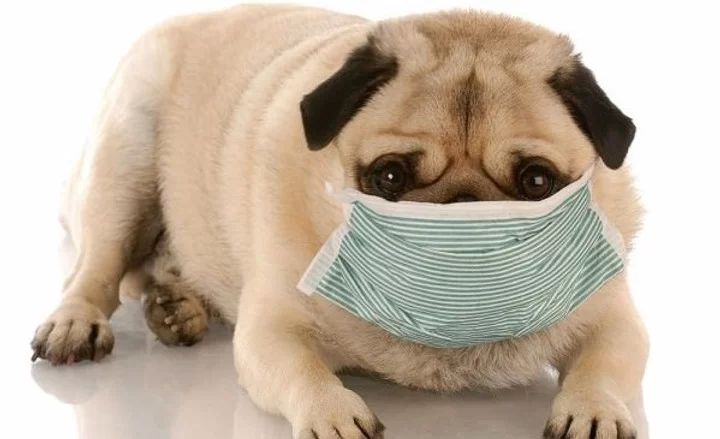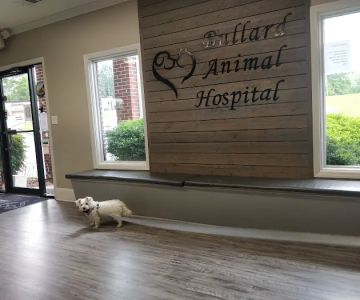How to Tell If My Pet Has an Upper Respiratory Infection? A Complete Guide to Symptoms and Treatment
- Understanding Respiratory Infections in Pets
- Common Symptoms of Upper Respiratory Infection
- Diagnosing Upper Respiratory Infections in Pets
- Treating Upper Respiratory Infections at Home
- When to Seek Veterinary Care
- Preventing Respiratory Infections in Pets
- Products for Pet Respiratory Care
Understanding Respiratory Infections in Pets
Upper respiratory infections (URIs) in pets, particularly in cats and dogs, are a common issue and can lead to serious health problems if not managed properly. These infections are usually caused by bacteria, viruses, or environmental irritants, and they affect the upper respiratory tract, including the nose, throat, and sinuses.
Pets with weakened immune systems, such as puppies, kittens, older pets, or those with underlying health conditions, are more prone to developing these infections. Early detection and proper care are crucial for a quick recovery.
Common Symptoms of Upper Respiratory Infection
If you suspect your pet might be suffering from an upper respiratory infection, it’s essential to watch for these common symptoms:
1. Coughing or Sneezing
Frequent coughing or sneezing is one of the primary signs that your pet could be suffering from an upper respiratory infection. These symptoms are often accompanied by nasal discharge.
2. Nasal Discharge
A clear or yellowish discharge from your pet’s nose is a common sign of respiratory issues. This could indicate inflammation or infection in the nasal passages.
3. Watery or Red Eyes
Upper respiratory infections often cause conjunctivitis, leading to watery, red, or swollen eyes in your pet.
4. Decreased Appetite and Lethargy
Pets with respiratory infections may lose interest in food and become more lethargic or tired than usual. This is often due to the discomfort caused by nasal congestion or sore throat.
5. Labored Breathing
If your pet is struggling to breathe, showing signs of rapid breathing or noisy breathing, it could be a sign of a more severe infection that requires immediate veterinary care.
Diagnosing Upper Respiratory Infections in Pets
If you notice any of the symptoms mentioned above, it's important to have your pet examined by a veterinarian for an accurate diagnosis. The vet will perform a thorough physical exam and may recommend tests such as:
1. Nasal Swab or Cultures
A nasal swab or culture can help identify the specific bacteria or virus responsible for the infection. This test is particularly useful if your pet's symptoms persist or worsen despite basic care.
2. Blood Tests
Blood tests may be recommended to assess your pet’s overall health and to rule out other underlying conditions that could be contributing to the respiratory symptoms.
3. Chest X-Rays
In severe cases, a chest X-ray may be necessary to rule out pneumonia or other complications associated with upper respiratory infections.
Treating Upper Respiratory Infections at Home
If your pet's upper respiratory infection is mild, you can manage it at home with a few basic care strategies:
1. Keep Your Pet Warm and Comfortable
Ensure your pet is in a warm, comfortable space where they can rest. Make sure they have easy access to food and water, as staying hydrated is important for recovery.
2. Use a Humidifier
A humidifier can help relieve congestion and make breathing easier for your pet. The moisture in the air can loosen up mucus and reduce irritation in the respiratory tract.
3. Monitor for Complications
Keep a close eye on your pet’s symptoms. If they start showing signs of worsening, such as increased difficulty breathing or blood in their mucus, it’s time to consult a veterinarian.
When to Seek Veterinary Care
While most mild upper respiratory infections in pets can be managed at home, there are times when veterinary intervention is necessary. Seek veterinary care if:
- Your pet shows signs of severe breathing difficulty or labored breathing.
- The symptoms last longer than a week or worsen over time.
- Your pet has a high fever or exhibits unusual symptoms, such as vomiting or diarrhea.
- Your pet is very young, elderly, or has an existing medical condition, as these factors increase the risk of complications.
At Hidden Brook Veterinary, we specialize in diagnosing and treating respiratory infections in pets. If you're concerned about your pet’s health, don’t hesitate to reach out for expert advice and care.
Preventing Respiratory Infections in Pets
Prevention is always better than treatment, and there are several steps you can take to reduce your pet’s risk of respiratory infections:
1. Regular Vet Check-ups
Routine veterinary check-ups ensure your pet is in good health and can help identify early signs of infections before they become serious.
2. Keep Your Pet’s Environment Clean
Maintain a clean living environment for your pet to reduce exposure to pathogens. Regularly clean bedding, toys, and areas where your pet spends time.
3. Avoid Contact with Sick Pets
If your pet is in contact with other animals, such as at a pet daycare or park, make sure they are not exposed to pets showing signs of illness.
Products for Pet Respiratory Care
Several products can help maintain your pet’s respiratory health, such as air purifiers, humidifiers, and respiratory supplements. For professional-grade care, visit Hidden Brook Veterinary to learn more about the best respiratory care products for pets. Your pet’s health is our priority, and we are here to support you every step of the way.












